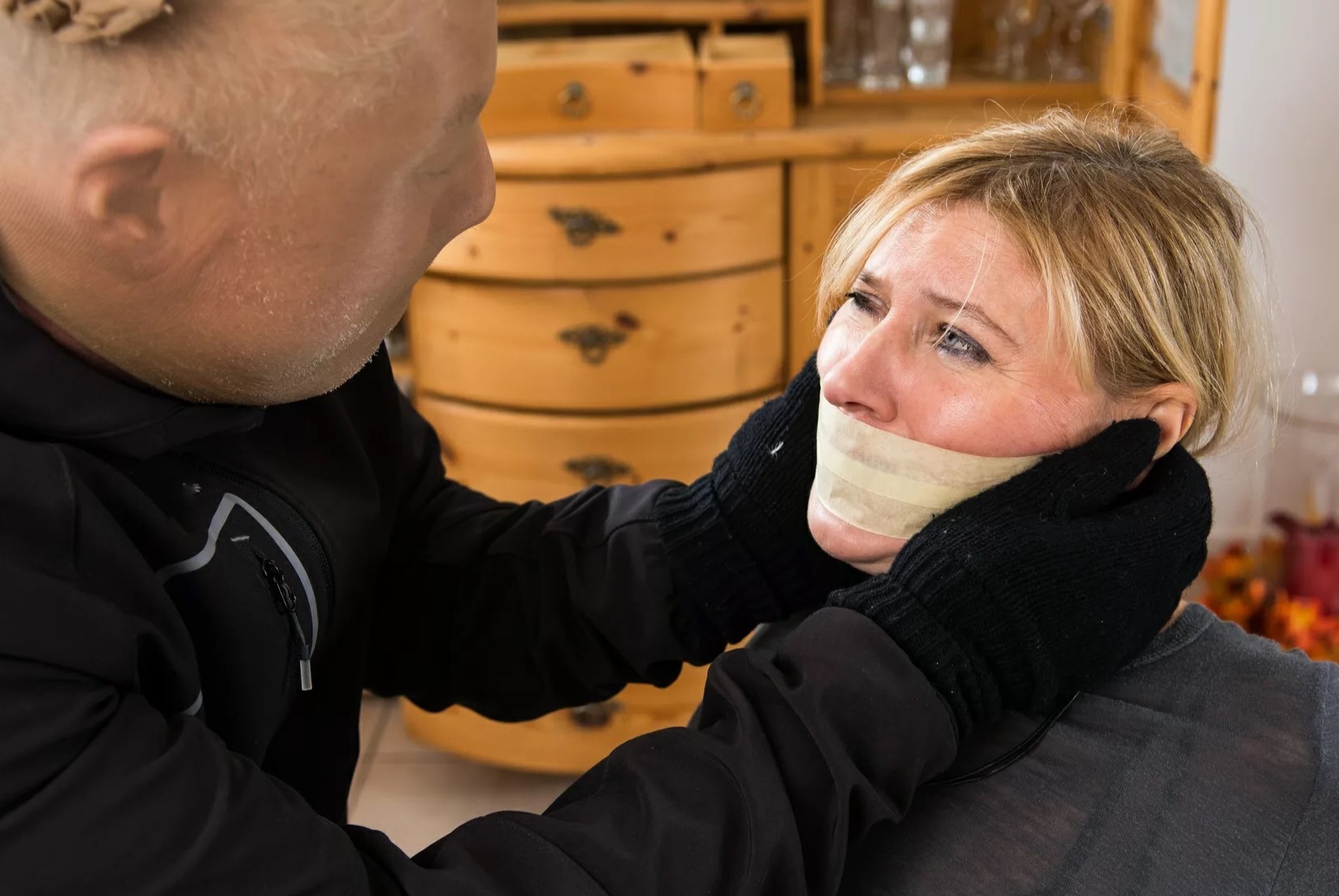
Harpaxophobia is the intense fear of being robbed or having one's possessions stolen. This phobia can significantly impact daily life, causing anxiety and stress. People with harpaxophobia often take extreme measures to protect their belongings, such as installing multiple locks, avoiding certain areas, or even isolating themselves. Understanding harpaxophobia is crucial for those who suffer from it and for their loved ones who want to offer support. This article will provide 40 facts about harpaxophobia, shedding light on its causes, symptoms, and potential treatments. Whether you're looking to understand this phobia better or seeking ways to cope, these facts will offer valuable insights.
Key Takeaways:
- Harpaxophobia is a serious fear of theft that can cause anxiety and avoidance behaviors. It can be triggered by traumatic experiences, genetics, and media coverage of crimes.
- Treatment options for harpaxophobia include therapy, medications, and coping strategies like relaxation techniques. Support and understanding from others are crucial for managing this fear.
What is Harpaxophobia?
Harpaxophobia is the intense fear of being robbed or experiencing theft. This phobia can significantly impact daily life, causing anxiety and stress. Let's dive into some intriguing facts about this lesser-known fear.
-
Harpaxophobia comes from the Greek words "harpax" (robber) and "phobos" (fear).
-
This phobia is classified under specific phobias, which are fears related to particular objects or situations.
-
People with harpaxophobia often avoid certain places or situations where they feel theft is more likely.
Symptoms of Harpaxophobia
Understanding the symptoms can help identify harpaxophobia in oneself or others. These symptoms can vary in intensity and may affect individuals differently.
-
Common symptoms include rapid heartbeat, sweating, and shortness of breath.
-
Some individuals may experience nausea or dizziness when thinking about theft.
-
Avoidance behavior is a key symptom, where sufferers steer clear of places they associate with theft.
Causes of Harpaxophobia
The causes of harpaxophobia can be complex, often involving a mix of genetic, environmental, and psychological factors.
-
A traumatic experience, such as being robbed, can trigger this phobia.
-
Genetics may play a role, as anxiety disorders can run in families.
-
Media coverage of crimes can heighten fear and contribute to the development of harpaxophobia.
Impact on Daily Life
Harpaxophobia can interfere with daily activities and routines, making it challenging to live a normal life.
-
Individuals may avoid public transportation due to fear of theft.
-
Shopping in crowded places can become a stressful experience.
-
Some people might install excessive security measures at home to feel safe.
Treatment Options
Various treatment options are available to help manage and overcome harpaxophobia. These treatments aim to reduce anxiety and improve quality of life.
-
Cognitive-behavioral therapy (CBT) is effective in treating specific phobias.
-
Exposure therapy gradually exposes individuals to their fear in a controlled environment.
-
Medications, such as anti-anxiety drugs, can help manage symptoms.
Coping Strategies
In addition to professional treatment, there are coping strategies that can help individuals manage their fear of theft.
-
Practicing relaxation techniques, like deep breathing, can reduce anxiety.
-
Mindfulness meditation can help individuals stay grounded and calm.
-
Joining a support group can provide a sense of community and understanding.
Famous Cases of Harpaxophobia
While harpaxophobia is not widely discussed, there have been notable cases that highlight its impact.
-
Some celebrities have openly discussed their fear of theft and how it affects their lives.
-
Historical figures have also been known to take extreme measures to protect themselves from theft.
Interesting Facts About Harpaxophobia
Here are some lesser-known facts that shed light on the nuances of harpaxophobia.
-
Harpaxophobia can sometimes be linked to other anxiety disorders, such as generalized anxiety disorder (GAD).
-
Virtual reality therapy is being explored as a treatment option for phobias, including harpaxophobia.
-
The fear of theft can sometimes extend to digital theft, such as identity theft or hacking.
How to Support Someone with Harpaxophobia
Supporting someone with harpaxophobia involves understanding their fear and offering practical help.
-
Listen without judgment and validate their feelings.
-
Encourage them to seek professional help if their fear is overwhelming.
-
Help them practice coping strategies and relaxation techniques.
Harpaxophobia in Different Cultures
Cultural factors can influence how harpaxophobia is perceived and experienced.
-
In some cultures, theft is a significant concern, leading to higher instances of harpaxophobia.
-
Cultural attitudes towards crime and safety can affect the prevalence of this phobia.
-
Traditional practices and beliefs may offer unique coping mechanisms for dealing with harpaxophobia.
Prevention Tips
While it may not always be possible to prevent harpaxophobia, certain measures can reduce the risk of developing this fear.
-
Educating children about safety without instilling excessive fear can help.
-
Promoting a sense of security and trust in the community can reduce anxiety about theft.
-
Encouraging open discussions about fears and anxieties can help address concerns early on.
Myths and Misconceptions
There are several myths and misconceptions about harpaxophobia that need to be addressed.
-
Harpaxophobia is not just a fear of losing material possessions; it involves a deeper sense of vulnerability.
-
People with harpaxophobia are not necessarily paranoid; their fear is a legitimate mental health concern.
-
This phobia can affect anyone, regardless of their socioeconomic status.
Research and Studies
Ongoing research is shedding light on harpaxophobia and its treatment.
-
Studies are exploring the genetic basis of specific phobias, including harpaxophobia.
-
Research on the effectiveness of different therapies is helping improve treatment options.
-
New technologies, like virtual reality, are being tested for their potential in treating phobias.
Future Directions
The future holds promise for better understanding and treating harpaxophobia.
-
Advances in neuroscience may provide deeper insights into the brain mechanisms behind phobias.
-
Increased awareness and destigmatization of mental health issues can lead to better support and resources for those with harpaxophobia.
Facing Harpaxophobia Head-On
Harpaxophobia, the fear of being robbed, can seriously impact daily life. Understanding its roots helps in managing this fear. Whether it stems from past trauma, media influence, or personal experiences, recognizing the cause is crucial. Seeking professional help, like therapy, can provide effective coping strategies. Cognitive-behavioral therapy (CBT) often proves beneficial in addressing irrational fears. Additionally, self-help techniques such as mindfulness, relaxation exercises, and gradual exposure can aid in reducing anxiety.
Building a support network of friends and family also plays a significant role. Sharing your fears with trusted individuals can offer comfort and reassurance. Remember, you're not alone in this journey. Many people face similar challenges and successfully overcome them. Stay informed, seek help when needed, and take small steps towards conquering harpaxophobia. With time and effort, it's possible to regain control and live a more secure, confident life.
Frequently Asked Questions
Was this page helpful?
Our commitment to delivering trustworthy and engaging content is at the heart of what we do. Each fact on our site is contributed by real users like you, bringing a wealth of diverse insights and information. To ensure the highest standards of accuracy and reliability, our dedicated editors meticulously review each submission. This process guarantees that the facts we share are not only fascinating but also credible. Trust in our commitment to quality and authenticity as you explore and learn with us.


